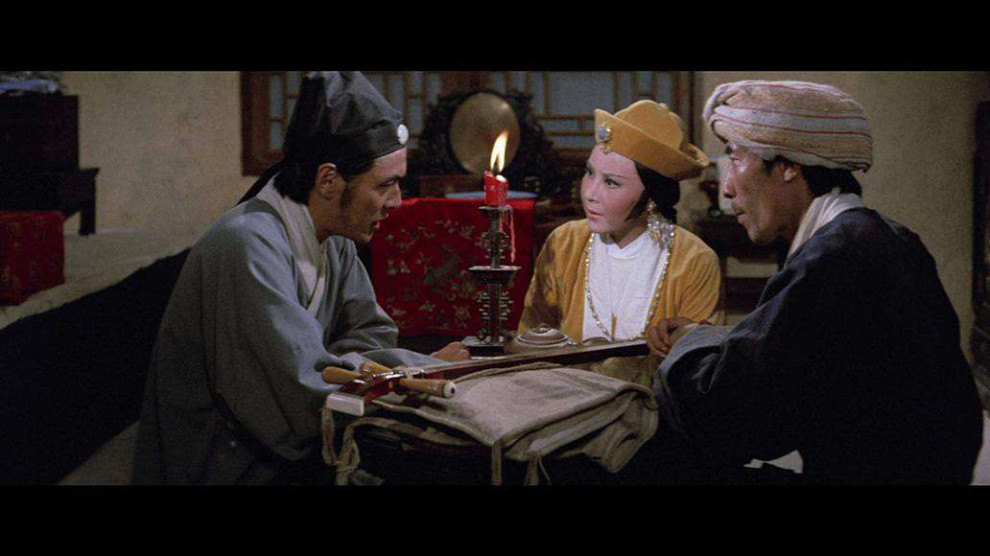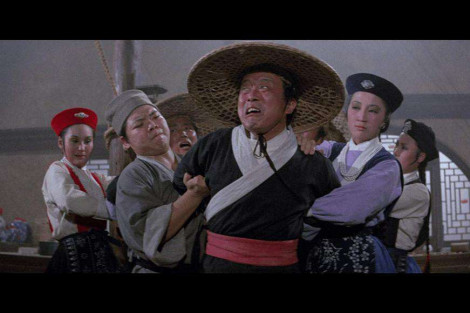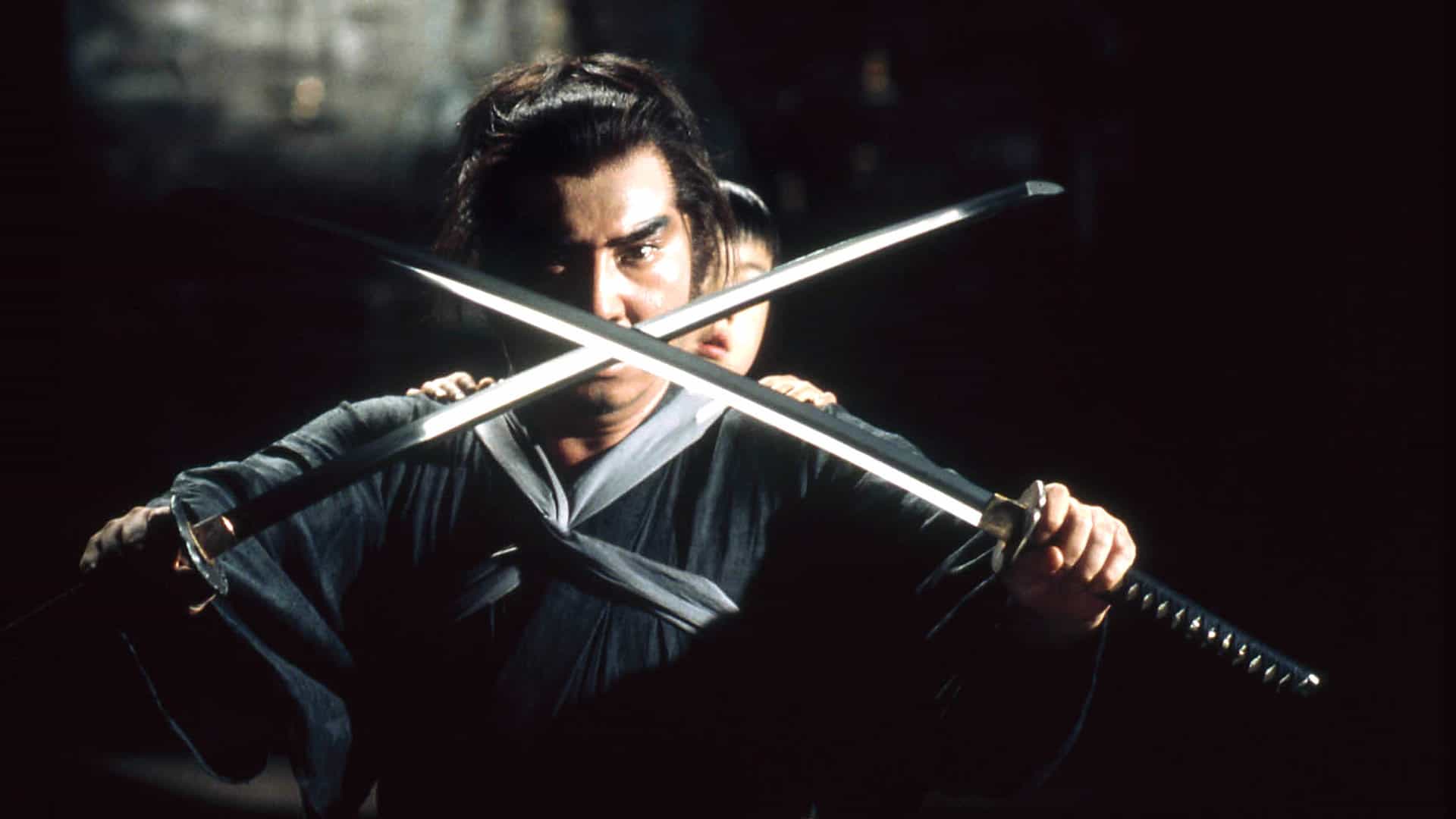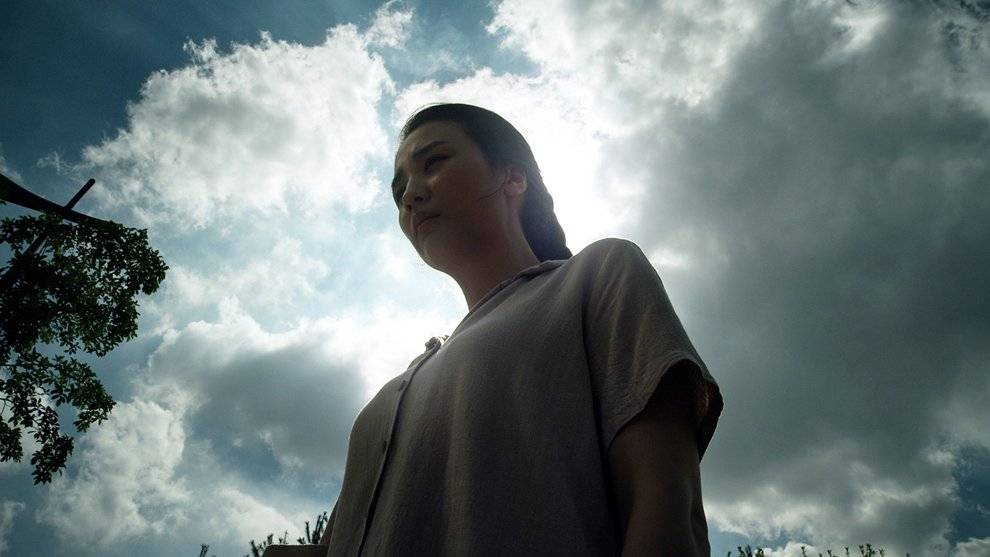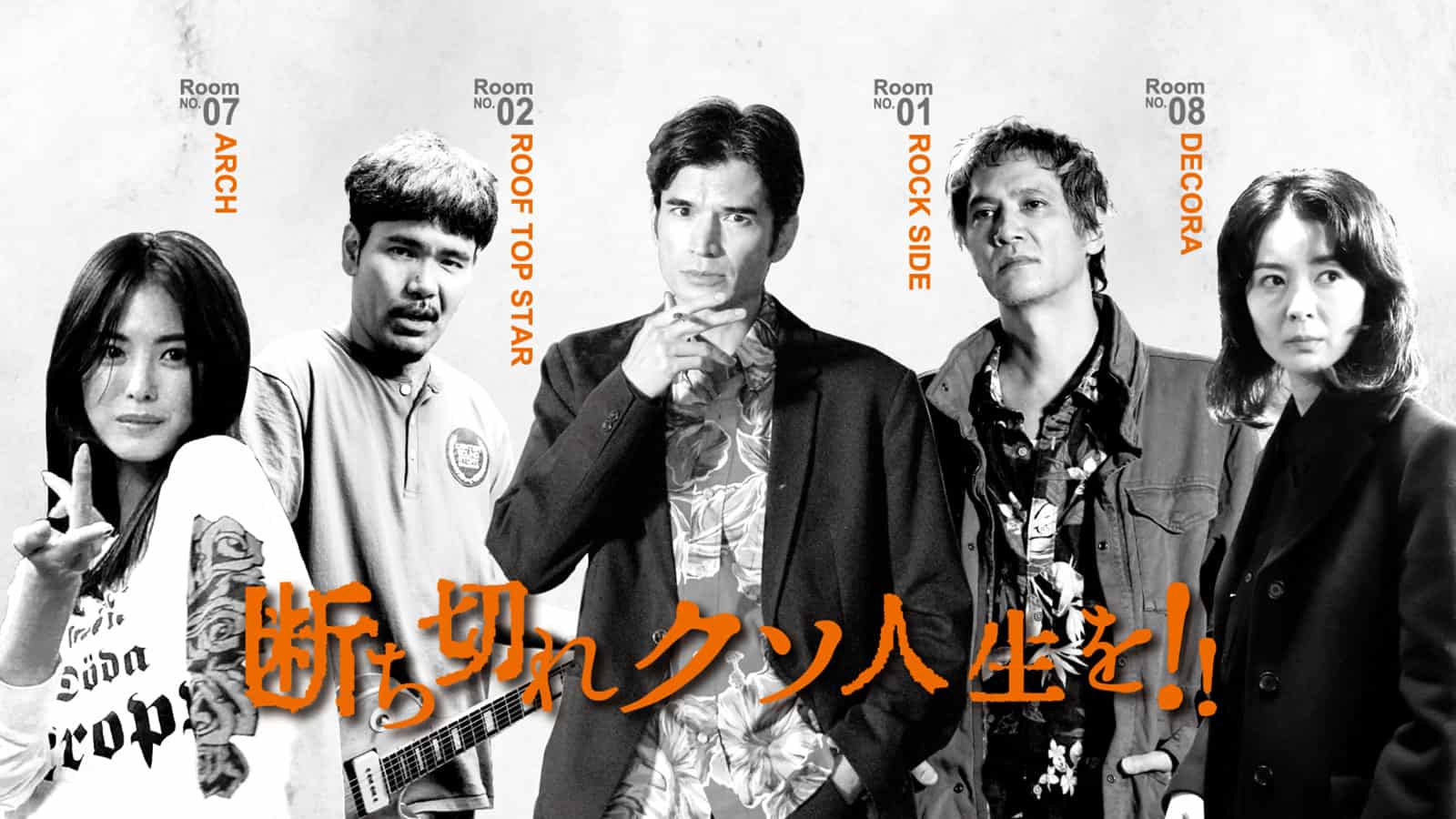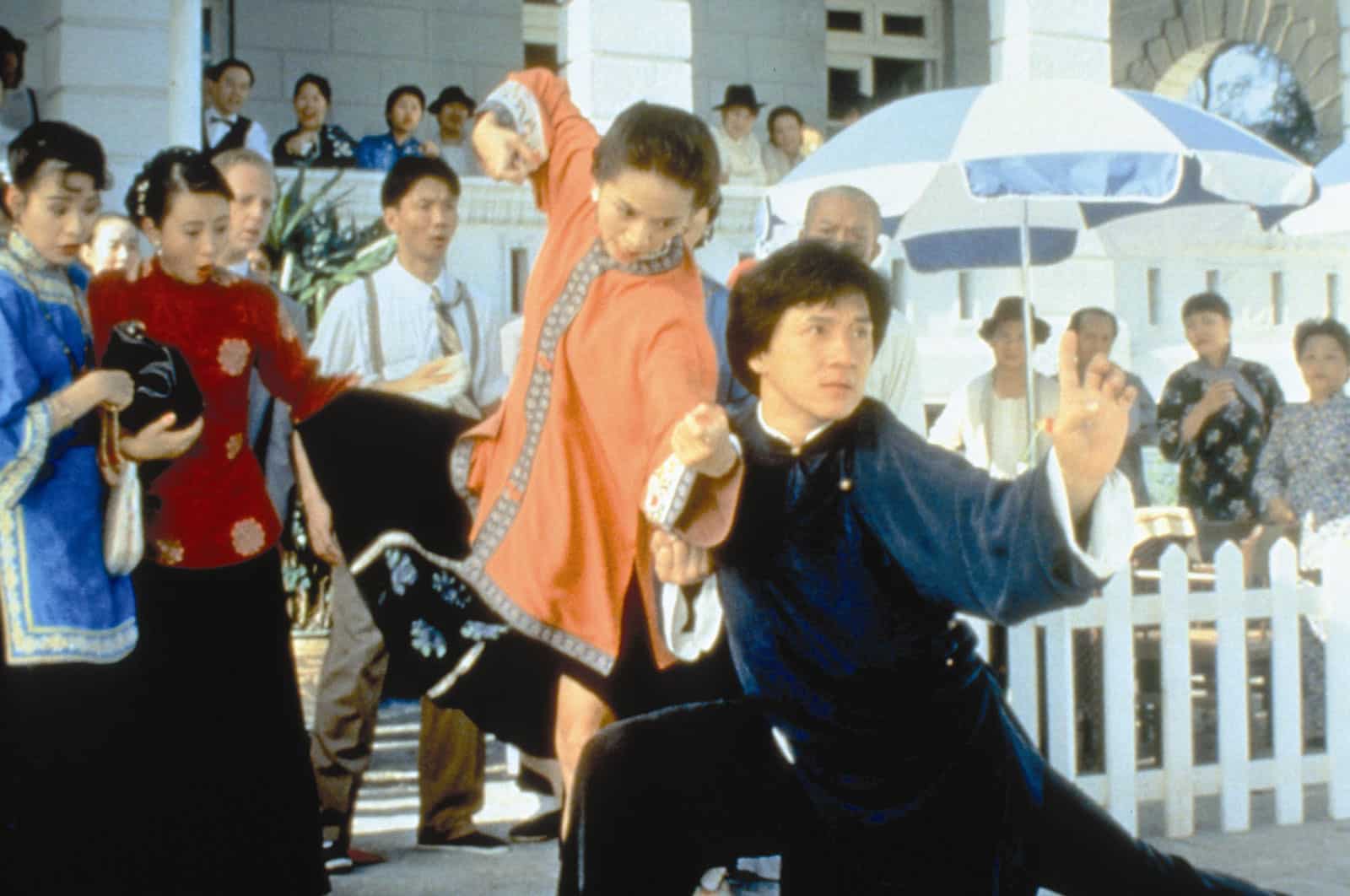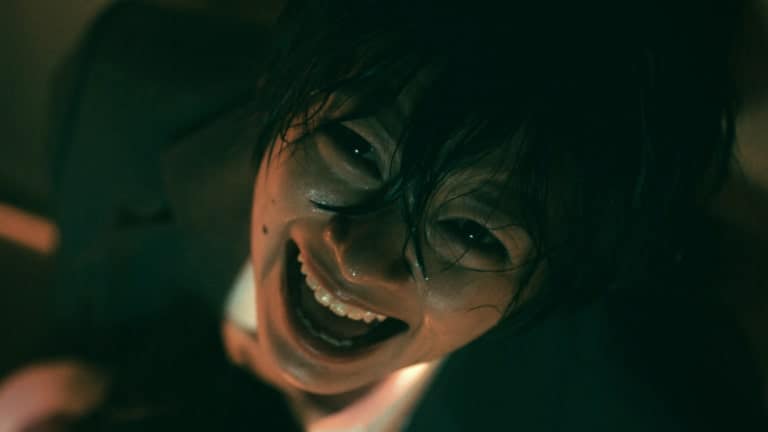One of the highlights of the last year in the United Kingdom has been the release of several King Hu movies on blu ray allowing one of the true craftsman of Asian cinema to be re-appreciated. Given the prodigious output of his contemporaries, it seems astonishing that his whole canon only amounts to 14 Features, yet some of these are undeniably masterpieces.
Buy This Title

Like “Dragon Inn”, this is more of a traditional wuxia movie as opposed to more fantastical works like “A Touch of Zen” but that is not to belittle it in any way.
The plot on the surface is quite simple. A bunch of rebels seek to capture the map that official Lee Khan is carrying, detailing the location of the rebel army. Awaiting him at the Spring inn lies a handful of rebels and a bunch of ex convict waitresses.
Action cinema is not strictly renowned for characterization but here we have a movie with depth and two distinct halves. The first has a playful tone, as the main protagonists are introduced and the skills are shown through character-based action. The choreography still relies on trampoline effects and is reminiscent of its time. Yet, as the film progresses, we see glimpses of what was to come from choreographer Sammo Hung, especially in the brief moments where Angela Mao gets to cut loose.
The second half is as expected: more tense with the arrival of Lee Khan, his sister and their entourage. The setting feels more claustrophobic as the plot machinations kick in. Tien Feng dominates this part with a powerful performance of composed villainy, constantly aware of the threat of imminent betrayal. Like his sister Lee Wan-erh, Hsu Feng embraces the dark side with an ice cold portrayal that nicely juxtaposes the sisterhood against her.
When the finale comes, we get to have an extended scene outside the inn for the first time and we get a wuxia scene with all the trimmings. It's like a release of all the tension that's been building up and the payoff to the character work by this point is that you do genuinely like some of them, and the inevitable sacrifices that characterize this genre feel all the more tragic as a consequence.
There is definitely a contrast between King Hu and his contemporaries. Around this time, we see a move away from female led swordplay to the emasculation of the genre, led by Chang Cheh and his more nihilistic interpretations of brotherhood. Here the female is equally as deadly as the male and, importantly, allowed to be feminine too. Indeed Li Li-Hua's Wan Jen-mi unashamedly uses her wiles to keep the local governor onside.
The direction is considered and the camera work flows smoothly. The only aspect here that really dates is the aforementioned trampoline effects but I accept that and it isn't too distracting. Whilst being a wu xia film, “The Fate of Lee Khan” doesn't slip fully over into the realm of fantasy like “A Touch of Zen” , due to it's storyline and is a suitable companion piece to the earlier “Come Drink with Me” and “Dragon Inn” of which it forms a loose thematic trilogy.
King Hu's movies are always worth a watch and a chance to observe the evolution of a genre as he was a major influence on New Wave Directors such as Tsui Hark. Sit back and enjoy an at times playful, intelligent and always entertaining work from a master.


